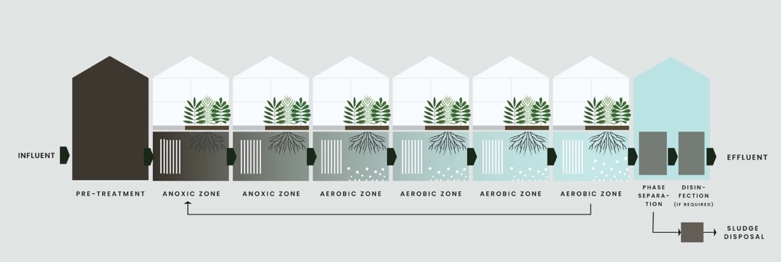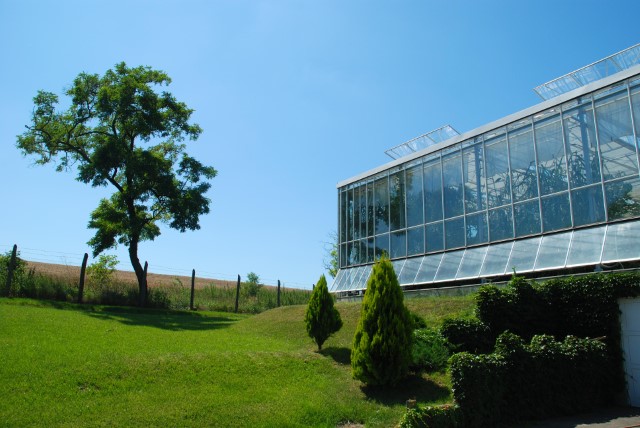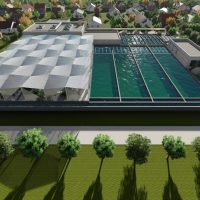Wastewater treatment methods are an extremely important part of keeping our environment sustainable. The treated wastewater is usually led back to natural water bodies, where it then gets extracted and later cleaned for utilities. Older facilities, built with a centralized point of view in mind, are becoming less and less effective as treating the ever-increasing amounts of wastewater from growing cities overloads facilities, leading to increased energy consumptions and malfunctions. Additionally, these facilities are now engulfed by the cityscape, demolishing land, value and truly becoming unsustainable in the long run.
Is there a better way to treat wastewater with a reduced cost and footprint to the planet? Here are some differences between traditional wastewater treatment methods and Organica Water’s sustainable treatment solution. These traditional methods include the cost of treating the wastewater, the physical footprint and carbon footprint left on the environment.
Traditional Wastewater Treatment Methods vs. Organica: What’s the Difference?

Traditional wastewater treatment plants are fairly large outdoor facilities that have a lot of adverse qualities. Two of the biggest are the sight and smell of the cumbersome, industrial water management systems. Not only are they unpleasant, they require huge infrastructure budgets, requiring investors to not only build the actual facility but to plan out and create the whole infrastructure of getting the wastewater to the WWTP. Simply put, these traditional treatment methods are an ineffective system and although it cleans the wastewater, they’re neither sustainable or economical.
A Few Issues in Wastewater Treatment (And Possible Solutions)
Even though in the past these facilities were considered top of the line, they were built decades ago, enabling alternative, more sustainable solutions to emerge, leading to these huge infrastructures becoming obsolete. There are a few huge issues facing wastewater and wastewater treatment plants, however, their solutions are plausible with a more sustainable approach.
Energy Consumption
The Problem:
One of the absolute largest issues facing wastewater management is energy consumption. Traditional treatment methods are one of the largest expenses in the entire wastewater industry. In retrospect, the cost of treating wastewater is exceedingly large and varies globally. These industrial facilities consume a lot of electricity and chemicals.
Electricity is used for many things in a facility but the biggest chunk of it is required for the operation of blowers, pumps and the aeration system. The aeration system pushes air through the wastewater, which is necessary for the biofilm to function in its wastewater treatment context. Due to the large amounts of MLSS, however, very robust aeration systems are necessary in a conventional treatment facility, which while gets the job done, drives operational expenses up.
The Solution:
Organica Water is focused on finding cleaner, greener ways to treat wastewater. Due to the fixed nature of the biomass in the reactors, the MLSS in said reactors is heavily reduced, enabling the application of smaller blowers, and thus leading to less electricity consumed by the aeration grid. Additionally, the more diverse, larger ecosystem, handles the same amount of treatment capacity in smaller reactors, compared to Conventional Activated Sludge methods, leading to smaller, more compact facilities.
Operation
The Problem:
It’s important to have highly skilled operational and maintenance management teams who have the necessary training and education to get the job done right when it comes to treating wastewater. On top of that, very precise measurement systems are necessary for these systems to drive OPEX and chemical consumptions down. While expertise and general know-how could definitely come in handy to optimize these processes, in many cases the lack of said measurement and sensor systems makes the operation of these facilities cumbersome.
The Solution:
Thanks to better technology and automation, operation and maintenance management duties can be better spread among team members, placing less stress on individuals.
Through digital services, Organica Water offers plant operators the ability to outsource the plant operations in full or in specific areas of need. Organica Water’s Digital Service combines decades of experience and advanced Digital offering, designed to optimize facility performance and ensures the operator receives the appropriate level of technical support through the entire life of the wastewater treatment plant (WWTP). These packages are designed to facilitate anything from day-to-day operation of the WWTP to data analysis and support of reducing energy, chemical, and sludge for clients, enabling high-paced decision making with significantly reduced risks in operation.
The Organica Solution:
There is still an issue with treating wastewater in urban areas but due to a different approach, the issue is depleting. Organica Water developed a creative solution that not only changes the sight of treatment facilities but saves on energy consumption, land value and cost to treat. The unique biofilm process results in a significantly smaller infrastructure impact and marks a new era in the way the industry treats wastewater.
These facilities can be placed in urban environments and produce no odor.

Thanks to the additional help of digital services, this state-of-the-art treatment method effectively reduces the size of the footprint wastewater treatment processes are leaving on the planet and sludge is starting to become better managed after being subtracted from the water. In the future, technology may even allow for a completely green sludge management program which companies like Organica Water help to bring awareness to.


